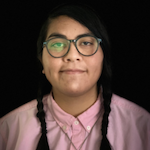Forming study groups is a very valuable strategy for enhancing learning. This is because groups share unique insights and learn from each other. In this presentation I will share the benefits of beginning and joining a student lead study group, ideas that can help a study group flourish and succeed. I will also introduce the different methods of where a study group can be help.
I am hoping that by helping students see the advantages that participating in a student lead online study group will increase their academic performance as well as improve their confidence, communication skills among their peers, and become aware of the diversity of the classroom.
The outcomes of this presentation will help in connecting globally by providing suggestions on creating a highly social learning environment. Holding group members accountable for the growing success of the students while learning new ways to approach subject matter. Finally, providing students with a support system that gives and receives motivations and support from fellow students in the group.
A recording of this presentation is available.
Click the button to the right to access the session archive.

 Candy Mowen has received the distinction of CFD (Certified Faculty Developer) from the Learning Resources Network which enables her to train faculty in the latest, most advanced faculty development strategies and techniques. I have been a college professor for the past 11 years and also teach in the public sector at Franklin County Career and Tech School.
Candy Mowen has received the distinction of CFD (Certified Faculty Developer) from the Learning Resources Network which enables her to train faculty in the latest, most advanced faculty development strategies and techniques. I have been a college professor for the past 11 years and also teach in the public sector at Franklin County Career and Tech School. Kūʻiʻolani Cotchay is a graduate student in the M. Ed. Learning Design and Technology program at the University of Hawaiʻi at Mānoa, where she received a BA in Hawaiian Studies. She is an alternative educator, interested in creating and fostering learning environments external to the typical classroom. Future plans include creating an online Girls Rock Camp, developing educational content for Kānaka Maoli, and obsessing more about Kānaka Color Theory.
Kūʻiʻolani Cotchay is a graduate student in the M. Ed. Learning Design and Technology program at the University of Hawaiʻi at Mānoa, where she received a BA in Hawaiian Studies. She is an alternative educator, interested in creating and fostering learning environments external to the typical classroom. Future plans include creating an online Girls Rock Camp, developing educational content for Kānaka Maoli, and obsessing more about Kānaka Color Theory. Sarah Nakashima regularly looks for strange articles revolving around animals and cults. As a Humanities Librarian at Hamilton Library at the University of Hawaiʻi at Mānoa (UHM), she uses the found information to engage undergraduate students in the research process. Her excitement for student engagement and her desire to broaden the library’s reach motivated her to pursue online learning. Currently, Sarah is finishing as a Master’s candidate in the UHM College of Education, Learning Design and Technology department. Her research focused on incorporating online learning strategies into current library instructional roles.
Sarah Nakashima regularly looks for strange articles revolving around animals and cults. As a Humanities Librarian at Hamilton Library at the University of Hawaiʻi at Mānoa (UHM), she uses the found information to engage undergraduate students in the research process. Her excitement for student engagement and her desire to broaden the library’s reach motivated her to pursue online learning. Currently, Sarah is finishing as a Master’s candidate in the UHM College of Education, Learning Design and Technology department. Her research focused on incorporating online learning strategies into current library instructional roles. Kris Hara is the chief simulation specialist at SimTiki Simulation Center located at the John A Burns School of Medicine in Honolulu, Hawaii. She grew up in Pupukea, HI and earned her respiratory therapy degree from Loma Linda University and Wayland Baptist University. She is currently a masters candidate at the University of Hawaii in Education, learning design and technology (LTEC). Her background as a registered respiratory therapist, pulmonary rehab specialist allowed her to actively engage in patient and staff education and clinical service for many years. In beginning a career in medical simulation in 2006 she fell even more in love with education. As a certified healthcare simulation operation specialist by the Society for Simulation in Healthcare she loves supporting medical students and faculty as the operations director of the simulation lab at JABSOM. Being a part of the LTEC ohana (family) has been a privilege and a joy!
Kris Hara is the chief simulation specialist at SimTiki Simulation Center located at the John A Burns School of Medicine in Honolulu, Hawaii. She grew up in Pupukea, HI and earned her respiratory therapy degree from Loma Linda University and Wayland Baptist University. She is currently a masters candidate at the University of Hawaii in Education, learning design and technology (LTEC). Her background as a registered respiratory therapist, pulmonary rehab specialist allowed her to actively engage in patient and staff education and clinical service for many years. In beginning a career in medical simulation in 2006 she fell even more in love with education. As a certified healthcare simulation operation specialist by the Society for Simulation in Healthcare she loves supporting medical students and faculty as the operations director of the simulation lab at JABSOM. Being a part of the LTEC ohana (family) has been a privilege and a joy! Tracy Crawford, MAEd, is a full-time faculty member teaching entry point and foundational courses for the College of General Studies with University of Phoenix where she has been working as a staff member for the past 15 years. She earned a Master’s degree in Education – Curriculum & Instruction/Adult Education Distance Learning and completed a Post-Baccalaureate Teacher Education Program for her Elementary teaching certificate. Tracy has been involved in education not only as a teacher and administrator, but also as a volunteer with United Way as a volunteer Reading Buddy, Head Start, Art Masterpiece and she has served as a Faculty Supervisor for student teachers. Tracy is a Certified Advanced Facilitator, has served as a Faculty Trainer, and facilitated both faculty and student workshops at University of Phoenix. Tracy’s true passion is helping students learn and grow!
Tracy Crawford, MAEd, is a full-time faculty member teaching entry point and foundational courses for the College of General Studies with University of Phoenix where she has been working as a staff member for the past 15 years. She earned a Master’s degree in Education – Curriculum & Instruction/Adult Education Distance Learning and completed a Post-Baccalaureate Teacher Education Program for her Elementary teaching certificate. Tracy has been involved in education not only as a teacher and administrator, but also as a volunteer with United Way as a volunteer Reading Buddy, Head Start, Art Masterpiece and she has served as a Faculty Supervisor for student teachers. Tracy is a Certified Advanced Facilitator, has served as a Faculty Trainer, and facilitated both faculty and student workshops at University of Phoenix. Tracy’s true passion is helping students learn and grow! Jennifer Romano is a graduate of Auburn University, receiving her Bachelor of Arts and Master of Arts in Mass Communication. While attending graduate school at Auburn, Jennifer was an instructor of Public Speaking. Upon graduating she became an adjunct professor at The University of South Alabama in Mobile, Alabama, followed by a full time instructor at Faulkner State Community College (now Coastal Community College) in Gulf Shores, Alabama. She taught communication and public speaking courses at both colleges. Then in 2007 Jennifer became a full time faculty member at Huntingdon College in Montgomery, Alabama, followed by Herzing University in Birmingham, Alabama; she was an instructor of mass communication, public speaking and humanities course. In 2013 Jennifer became a full time faculty member at University of Phoenix, where she is currently working as a full time instructor of General Studies and Humanities courses. She has over 15 years of experience with online instruction and LOVES being an instructor at University of Phoenix!
Jennifer Romano is a graduate of Auburn University, receiving her Bachelor of Arts and Master of Arts in Mass Communication. While attending graduate school at Auburn, Jennifer was an instructor of Public Speaking. Upon graduating she became an adjunct professor at The University of South Alabama in Mobile, Alabama, followed by a full time instructor at Faulkner State Community College (now Coastal Community College) in Gulf Shores, Alabama. She taught communication and public speaking courses at both colleges. Then in 2007 Jennifer became a full time faculty member at Huntingdon College in Montgomery, Alabama, followed by Herzing University in Birmingham, Alabama; she was an instructor of mass communication, public speaking and humanities course. In 2013 Jennifer became a full time faculty member at University of Phoenix, where she is currently working as a full time instructor of General Studies and Humanities courses. She has over 15 years of experience with online instruction and LOVES being an instructor at University of Phoenix! Siobhán Ní Dhonacha is an Assistant Faculty Specialist for the Honors Program and Regents and Presidential Scholars, and a Truth, Racial Healing and Transformation (TRHT) Fellow. Indigenous Irish, Dr. Siobhán was born and raised in Dublin, Ireland.
Siobhán Ní Dhonacha is an Assistant Faculty Specialist for the Honors Program and Regents and Presidential Scholars, and a Truth, Racial Healing and Transformation (TRHT) Fellow. Indigenous Irish, Dr. Siobhán was born and raised in Dublin, Ireland.